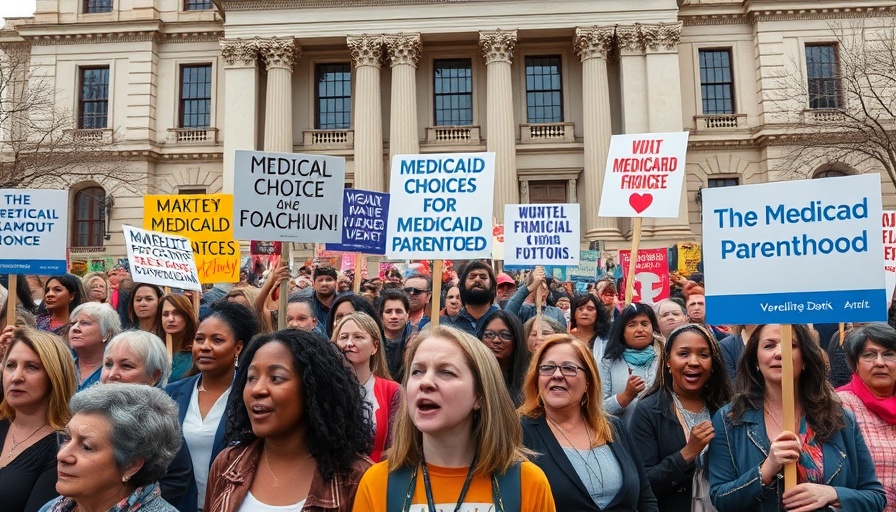
Understanding the Impact of Medicaid Choices
On June 25, 2025, the U.S. Supreme Court ruled in a significant case known as Medina v. Planned Parenthood South Atlantic that individuals relying on Medicaid have diminished rights regarding their health care provider choices. In a 6-3 decision, Justice Neil Gorsuch stated that the Medicaid statute does not give recipients the right to sue states for choosing which providers they can access. This judgment could affect the health services available to millions.
Why This Decision Matters for Healthcare Access
The ruling centers on a practical issue faced by many individuals enrolled in Medicaid, who may find their choices either limited or completely omitted based on political decisions. For example, Julie Edwards of South Carolina turned to Planned Parenthood for essential reproductive health services, including contraception and cancer screenings. However, due to an executive order from Gov. Henry McMaster, Medicaid funds could no longer reimburse for such services at Planned Parenthood, effectively forcing patients like Edwards to find alternative care options.
The Broader Implications for Reproductive Health
Planned Parenthood is a longstanding provider of reproductive health services and offers a range of necessary care options. This ruling raises alarms about wider access to these services under Medicaid, threatening to exclude vital providers and potentially harming the health outcomes for over 78 million Americans. Excluding major providers from Medicaid essentially diminishes the quality and reliability of healthcare for low-income populations.
Potential Consequences on Health Outcomes
Health experts warn that limiting healthcare provider choice, especially in essential services, could lead to adverse health outcomes. When patients cannot see their preferred healthcare providers, it may hinder their access to preventative screenings and timely medical advice. Such barriers can significantly impact not just individual health but public health at large.
Emphasizing Patient Autonomy
Choice in healthcare is closely linked to patient autonomy—a fundamental principle in medical ethics. The Supreme Court ruling effectively strips away this autonomy for many Medicaid patients, further complicating an already fragmented healthcare system. The repercussions of such a decision underscore the essential nature of ongoing debates surrounding patient rights, reproductive justice, and access to care.
Analyzing the Future of Medicaid Services
This ruling may signal a trend that could further threaten Medicaid's ability to serve vulnerable populations adequately. If states can restrict providers based on political motives, recipients may need to brace for further constraints on healthcare access, making advocacy for patient rights more critical than ever.
Encouraging Advocacy for Patient Rights
With this new legal landscape, it's crucial for healthcare advocates, policymakers, and community organizations to engage actively. Being informed and taking action against restrictive practices can help ensure Medicaid recipients have the legal backing to receive healthcare from their preferred providers. Advocacy efforts can lead to broader discussions about revising Medicaid statutes to enhance patient rights.
Your Role in Healthcare Advocacy
Health-conscious individuals can play a role in shaping the future of healthcare access by staying informed and advocating for change. Whether it's through community organizing, supporting healthcare initiatives, or educating others, your voice matters. It's essential to be part of the dialogue about healthcare access, reproductive rights, and patient autonomy.
Conclusion: A Call to Action
The intersection of healthcare policies and personal rights impacts many people's lives. As a community, it is vital to support efforts advocating for the rights of Medicaid recipients, ensuring they can choose their healthcare providers freely. Together, we can work towards a system that prioritizes health equity and access for all.
 Add Row
Add Row  Add
Add 




Write A Comment